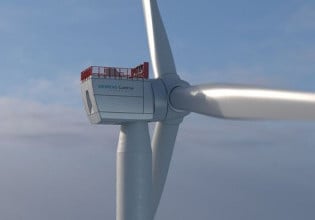Two Boeing 702SP (small platform) satellites, the first all-electric propulsion satellites to launch, have sent initial signals from space, marking the first step toward ABS, based in Bermuda, and Eutelsat, based in Paris, being able to provide enhanced communication services to their customers. What's more, the satellites were launched as a conjoined stack on a single SpaceX Falcon 9 rocket, demonstrating a patented Boeing technology that promises to noticeably reduce launch costs.
The 702SP operates in the low- to mid-power ranges of 3 to 8 kilowatts, and expands the capability of the 702 satellite family to power ranges from 3 to 18 kilowatts. The 702SP features all-electric propulsion, which minimizes spacecraft launch mass and maximizes available payload. Able to accommodate up to five reflectors, the 702SP provides additional mission flexibility to its operators and broader services to users. It also features a next-generation avionics architecture, which simplifies operations and provides improved access to data for evaluation of the spacecraft’s health.
The 702SP’s lightweight system design accommodates launch on most commercial launch systems, including Falcon 9, Ariane 5, Sea Launch, Proton, Soyuz, Atlas 5 and Delta IV. Because of its lower mass and weight, two 702SP satellites can be launched on a single launch vehicle, resulting in a cost savings of up to 20 percent when compared with existing launch options.
The Boeing 702SP can operate in the S-, X-, C-, Ku, and Ka-band frequencies and, as with all Boeing 702s, is designed to provide 15 or more years of satellite service with additional fuel capacity to enable multiple station changes over the life of the satellite. The 702 family of vehicles is designed to accommodate hosted payloads, such as sensors, UHF, military Ka-band and navigation L-band, resulting in additional flexibility for customers.
“By launching the satellites as a pair, Boeing customers can save on launch costs while benefitting from the company’s highly capable and flexible platforms to meet their mission requirements,†said Mark Spiwak, president, Boeing Satellite Systems International, Inc.






